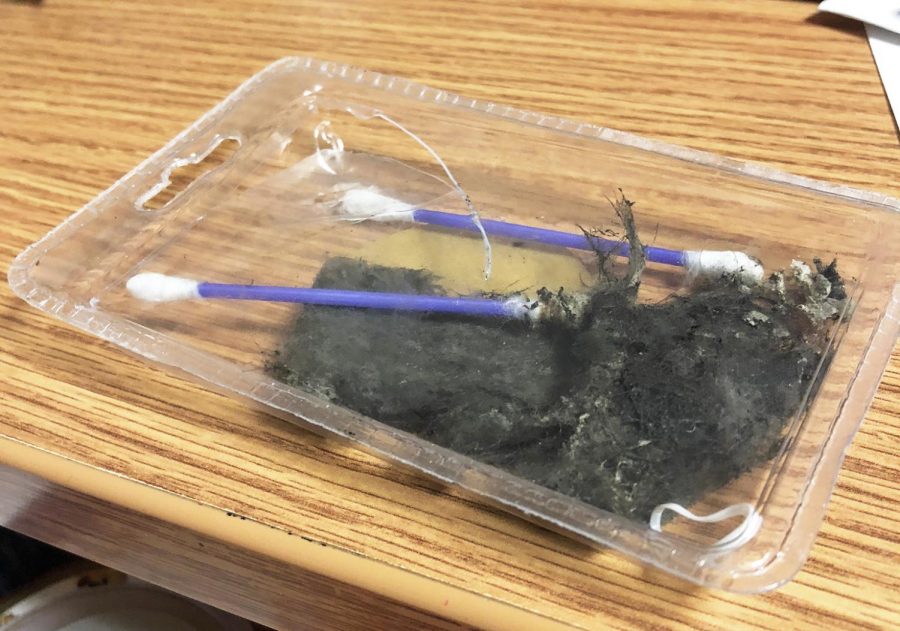WKU takes measures to reduce and prevent mold in residence halls
September 23, 2018
Officials within WKU’s housing and facilities departments are taking steps to become more proactive with cleaning students’ dorm rooms to prevent the spread of mold, Mike Reagle, director of Housing and Residence Life, said.
Maintenance crews from HRL and Facilities Management started walking through students’ dorm rooms on Sept. 13 in Bemis Lawrence Hall, Barnes-Campbell Hall and Pearce-Ford Tower, wiping down all surfaces and checking the rooms’ HVAC units for cases of mold.
The detailed search for mold comes after several reports of mold in HVAC leading to illness. One student said she believes the mold in her unit at Bemis Lawrence Hall caused her to become sick with flu-like symptoms and need an emergency tonsil surgery.
Reagle said rather than address isolated cases of mold in Bemis, Barnes and PFT, HRL has decided to check every room as a more preventative measure. The majority of reports of mold in residence hall HVAC units have been issued from Bemis and PFT, according to InSite’s “Service Request Status” database.
“[We] decided that we really needed to be more proactive about that, make sure that we were doing that across the board and make sure we were hitting other areas that may or may not have problems,” Reagle said.
Bryan Russell, WKU’s chief facilities officer, said maintenance crews and volunteers first enter the room for deep cleaning or wiping down all of the surfaces. He said about 30 volunteers helped with wiping down the rooms in Bemis on Saturday and about 20 volunteers helped on Sunday.
Russell said technician crews will go into every room that has been wiped down and take every HVAC unit apart to check and clean its components. The technician crews will be going through the rooms on weekdays between 10 a.m. and 8 p.m. He said that cleaning rooms and checking the air conditioning units in Bemis, Barnes and PFT will take about three months altogether.
“We’re trying to be very thorough with our action,” Russell said.
In a statement from the WKU administration to the Herald, President Timothy Caboni said that the university will bring in “whatever resources are necessary to replace and repair air handling equipment to reduce the likelihood of recurrence.”
“Out of an abundance of caution and in an effort to be proactive, we are deploying all available resources to go room by room, floor by floor, beginning with Bemis-Lawrence Hall, to remove and remediate mold from these facilities,” Caboni said in WKU’s statement.
Maintenance and technician crews are focusing on Bemis, Barnes and PFT and will address specific maintenance and air quality issues in other residence halls through the work order and maintenance request system. Students can submit a maintenance request through InSite on HRL’s website.
Reagle said this more proactive effort is in addition to the preventative maintenance system that the university already had in place. As part of preventative maintenance for residence halls, all of the halls are cleaned during the summer and are “touch-up cleaned” before students move in.
Russell said the filters in the HVAC units for residence halls are changed four times a year. He said there has been a higher number of mold cases in September because of the unusually hot and humid weather during the month.
To prevent mold, Reagle and Russell recommend that students keep the windows of their dorm rooms closed, especially on hot and humid days, in order to prevent condensation from building up in the HVAC units. The condensation in the unit can lead to the spread of mold.
Students are recommended to wipe down to top of their HVAC units almost daily to prevent organic matter from building up on the unit, and they are recommended to not keep furniture or other large items in front of their HVAC units in their dorm rooms.
Reagle said this prevents air from properly circulating through the room, which can create a build-up of hot air and moisture in the HVAC unit and cause mold to spread.
“We have chosen to be very proactive about this to maintain the healthy environment for students that we promised,” Reagle said.
Nicole Ziege can be reached at 270-745-6011 and [email protected]. Follow Nicole Ziege on Twitter at @NicoleZiege.
























